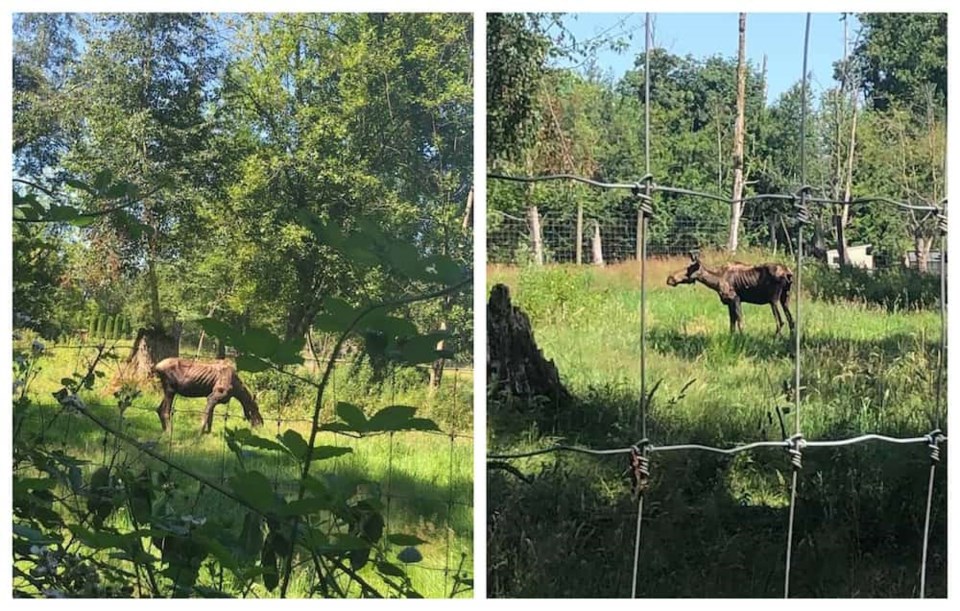The BC SCPA is continuing an investigation after a moose was euthanized at the Greater Vancouver Zoo.
Earlier this week, photos of the malnourished-looking moose sparked public outcry after they surfaced on social media.
Eileen Drever, Senior Protection Officer, BC SCPA, told Vancouver Is Awesome in an email that the SPCA received a call about an eight-year-old moose named Oakleaf on July 21. However, she notes that Marcoux originally sent an email to the zoo addressing her concerns about the moose.
"Menita Prasad, Animal Care Manager/Media Spokesperson responded explaining [that for] moose held in captivity, their life expectancy is eight years of age for females and six years for males," writes Drever.
According to National Geographic, however, the life expectancy of a moose in the wild is 15 to 20 years.
Animal Law Lawyer Victoria Shroff tells V.I.A. in a phone call that it is difficult to get the full picture of the animal's health from a couple of photographs. That said, she adds that zoos are not ideal places for animals to live, and that profit often comes before the best interests of animals. She was also shocked to hear that Oakleaf was euthanized so quickly after her health came into question.
Shroff notes that the BC SPCA Vision statement calls to inspire and mobilize society to create a world in which all animals enjoy as a minimum, five essential freedoms:
- Freedom from hunger and thirst
- Freedom from pain, injury, and disease
- Freedom from distress
- Freedom from discomfort
- Freedom to express behaviours that promote well-being
In Oakleaf's case, Shroff wonders if her needs were being met, and if she was in distress long before her death. While it is hard to say how long she was ill or if she was ill at all, she notes that, "You should not be seeing ribs on an animal. They don't get that skinny in 24 hours. That takes a long time."
Shroff also says that if Oakleaf was sick, she should have been receiving veterinary care instead of being left out in a field. She adds that being on display may have added stress.
The Prevention of Cruelty to Animals Act of British Columbia, Section 9.1 (1) states, "A person responsible for an animal must care for the animal, including protecting the animal from circumstances that are likely to cause the animal to be in distress."
V.I.A. has reached to to the GVZ multiple times and has not received comment.
In April, Serge Lussier, General Manager of the Greater Vancouver Zoo, told V.I.A. in a phone call that the zoo is planning a massive, multi-million dollar renovation over the next five years.
As for the vision of the new zoo, Lussier says it will have a Canadian and an African Safari Park. In the Canadian one, he says visitors will find a number of species that call British Columbia home.
"It will be a piece of Africa in the heart of B.C.," describes Lussier. "There will also be an African village."
In December 2019, the Vancouver Humane Society called for significant reform at the Greater Vancouver Zoo. Commissioned by the VHS from Zoocheck, the report found that many of the GVZ's animals were living in unsuitable conditions, which include under-sized cages that restrict them from their natural behaviour. While the report notes that the GVZ has made positive changes since the 1997 report was published, it states that, "some longstanding issues remain problematic and should be addressed."
The report also called for the GVZ to remove animals that aren't suited to B.C.'s climate, as well as any animals that it can't accommodate in a way that better meets their overall needs.



